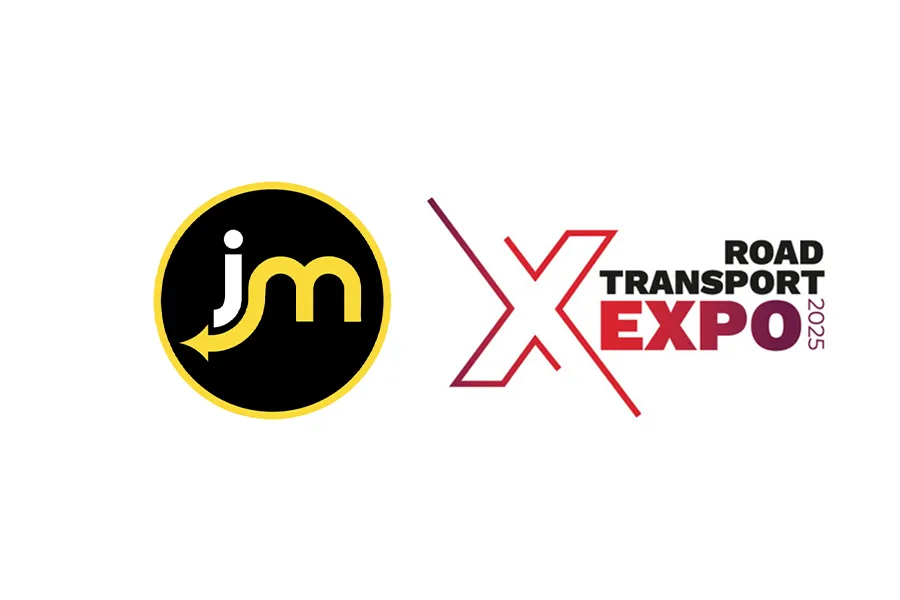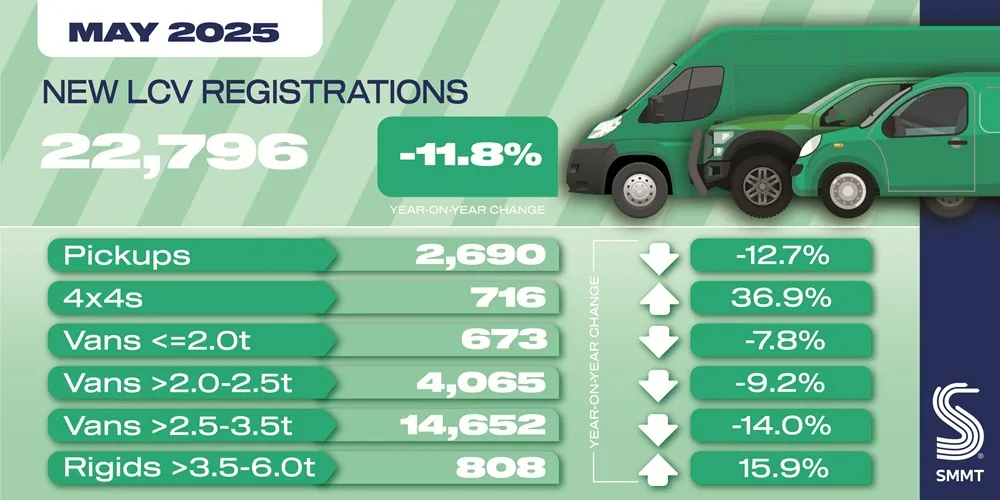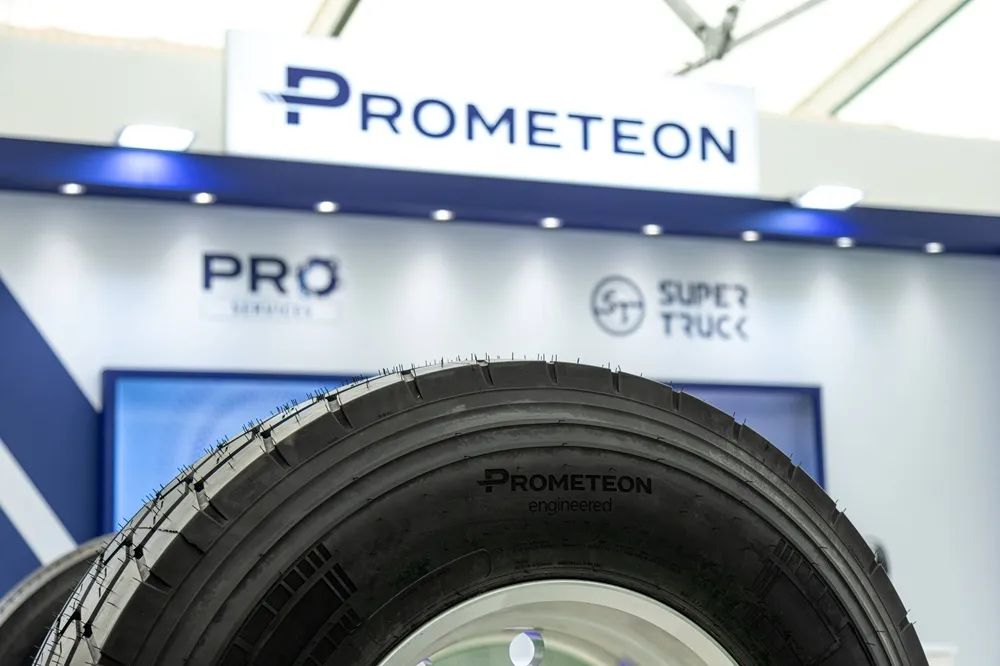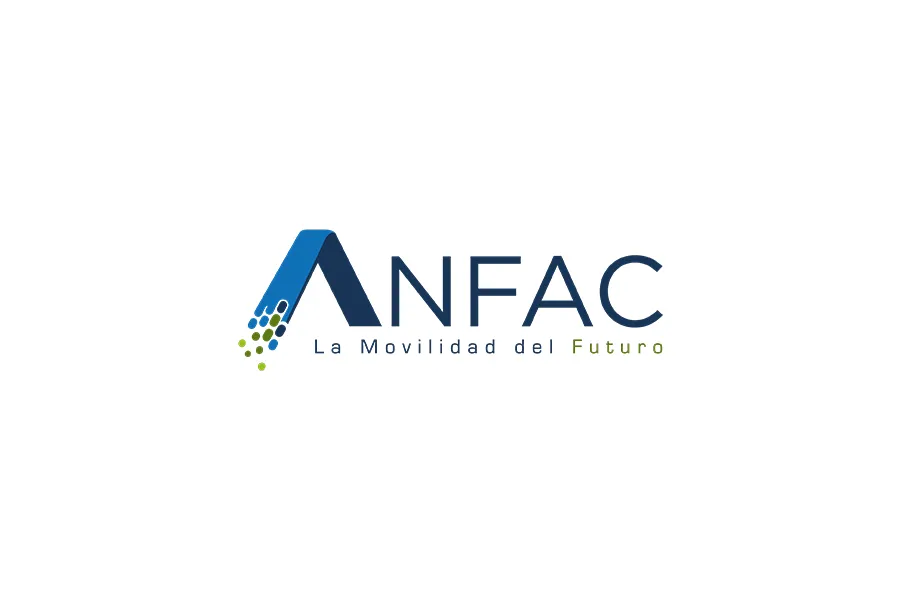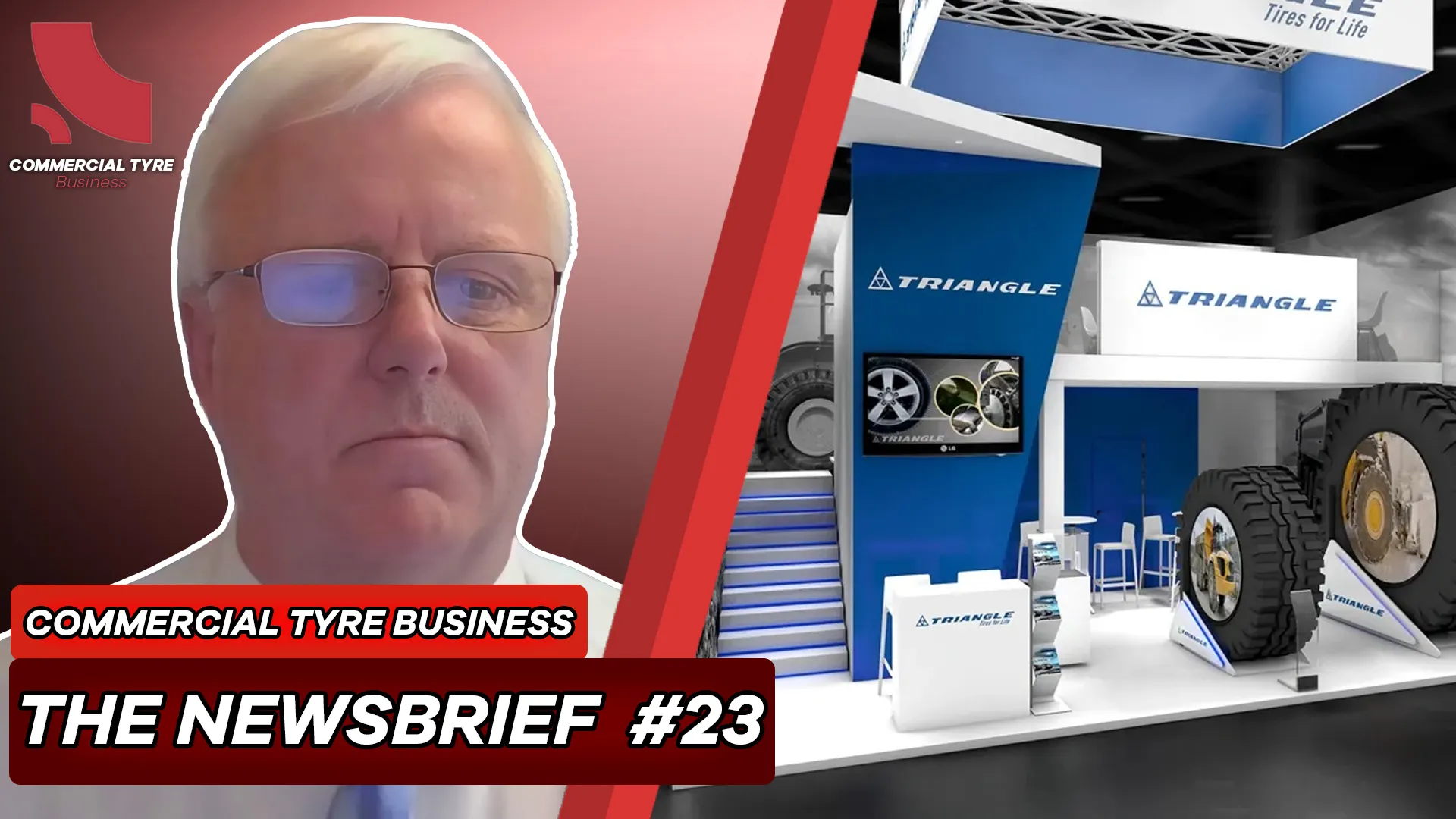The latest exclusive interview for Commercial Tyre Business has taken us into the field of data capture in the commercial tyre industry with Anyline. Fréderic Baroin, the VP EMEA for Anyline detailed the company’s trajectory from 2013 to the present day and how it sees its technology being leveraged in the truck tyre and retreading sectors.
VP EMEA for Anyline, Fréderic Baroin Talks Anyline’s Strategy for Commercial Tyre Sector
Coming close to approximately a 100 staff based in Vienna and Boston, Anyline was founded in 2013 to provide technology for a company called mySugr, who provided digital meters for people with diabetes, the idea being for a phone to read the digital numbers on a monitor to help patients. From there, the technology grew into the automotive sector where it was applied to scan serial numbers on parts, before moving onto vehicle identification numbers to license plates and driver’s licenses.
This move into the automotive sector naturally moved towards tyres when a project with Discount Tire saw the launch of a tyre DOT number scanner. According to Baroin, the VP EMEA for Anyline, this was the point when the company realised that it had a unique combination of data capture solutions in its armoury to collect data from almost every point of the vehicle.
The company then took a further leap forward with the recent launch of the commercial tyre serial number scanner as reported on Commercial Tyre Business. This technology offers enhanced visibility to fleet management, enabling users to scan and digitise tyre sidewall data in milliseconds, which brings us up to 2021. However, before we step forward into Anyline’s current strategy and view of the tyre ecosystem, Baroin dived into the company’s ongoing project with US tyre dealer Discount Tire to put some more meat on the bones as to how Anyline took its initial steps in the tyre industry.
“The Discount Tire project was a very exciting journey for us as it was the first time that our expertise was requested in mobile data capturing for reading information from the tyre sidewall, he explained. “With the high levels of regulation in the US in relation to tyre recalls and tyre inspections, it requires an extremely accurate tyre inspection process.
“This process is one that requires the tyre technician to read the DOT information at a very high frequency in multiple locations, and considering the working environment, it’s easy to see how automation of this process can lead to significant operational savings,” Baroin continued. “This is the process that we have automated very successfully in the old tyre inspection process that was in the process of being digitised.”
Due to confidentiality terms, Anyline was not able open up too much on the Discount Tire case, but it is evident to see that the tyre dealer has seen great success as an early adopter of the technology. Baroin did clarify, though, that work is underway between the two operations in some innovative new projects which should “continue the digitalisation of the service retail operation.”
Moving from the US to Europe and looking closer at commercial fleets on the continent, Baroin underlined how the system currently “is not led by DOT traceability, but by the tyre ID or serial number. He added, “DOT is a batch number and commercial tyre ID, and this is a key element in ensuring end-to-end traceability through the life cycle of the commercial tyre from manufacturing, quality assurance processes through service operations, casing management and the retreading process.
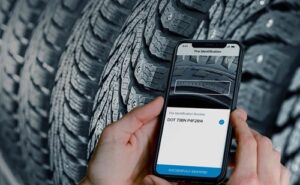
“What does it mean for the tyre technician? It means he has been offered a solution to solve the issue of being forced to spend too much time typing in manual information. This is the problem we are here to solve.”
This type of traceability gives Anyline the possibility of applying this technology across the complete tyre ecosystem from manufacturing to supply chain to service operations, fleet management, retail inspection and retreading. Besides the traceability advantage, operational transparency is also a key USP for Anyline, which will be of keen interest to large fleet customers and the tyre OEMs.
According to Baroin, the key to Anyline’s technology is its ability to be applied practically in the field.
“Tyre identification is a tricky expertise for any of us, and barcodes were introduced to address this issue, but barcodes also have intrinsic limitations, regardless of the quantity of data that you can put into the barcode, for example with regards to accessibility to the tyre, but also considering the fact that putting information on the barcode is one thing, but reading out this information is another. When you integrate a new technology, you have to be able to leverage the technology through the whole chain, and this is where the challenge lies for both the barcode and the RFID. Technically, it works, yes, but what about its adoption in the field?
“The bottleneck we see at the moment, he continued, “is the adoption on the field in the aftermarket in terms of service operation. How long it will take until the RFID is rolled out massively enough so that it gets to really standout? What about the fact that RFID has also limited capacity and that it currently mostly requires connection to external services, cloud services, to get additional information about the tyre?”
According to Anyline, one of the key advantages of Anyline’s mobile data capture system is that it works offline, so that no matter where anybody is in a manufacturing facility or a service workshop, connecting to the internet is not necessary for the technology to work and for the technician to capture the data.
The VP EMEA for Anyline also explained how the company was seeing requests coming in from companies operating in the casing management space, retreading sectors and also organisations looking to leverage the technology in their manufacturing processes, which he admitted was “a bit more of a surprise” for the company. He said, “Improving casing management is key, as we have some requests from this industry to improve the traceability of casing management.
“In manufacturing we see more and more enquiries coming in with the intention of enhancing traceability, quality assurance processes during the manufacturing and the in-factor supply chain processes. This is not specific to a brand or to a region, and these are all major countries producing tyres, asking for our expertise, including in the retreading process, as we have received some requests from major tyre OEMS serving large retread plants as well.”
So, considering the volume of requests coming in from the market and the technological developments achieved through the commercial tyre serial number scanner, what is Anyline’s immediate goal? Baroin responded clearly, “our goal is to become the leader in tyre sidewall reading technology. We have fantastic proof with the success with Discount Tire that this can be rolled out in a big way with high intensity usage. We aim to duplicate these proof points across different markets.
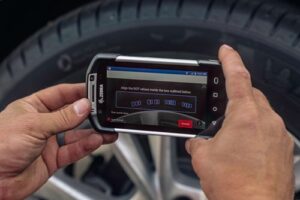
“In terms of digital workflows, the Commercial Tyre ID is the next step that we are working on with some tyre OEMs at the moment. Tyre dimension is also a topic, which we have started work on. These for us are the two major milestones on our roadmap.”
By tyre dimensions, it’s worth noting that this includes the speed and index information. The added advantage of this processes in the aftermarket is that in a service operation the tyre is associated with the vehicle, and Anyline possesses strong capabilities in vehicle authentication via the license plate and the VIN number. These for Anyline are aspects of the technology that can be systematically applied in aftermarket scenarios.
In terms of other technologies and sectors that the company is working in, Anyline has been making steps into the retail space and working a lot on improving their existing barcode scanning technology for that sector and also for logistics and supply chain.
An undoubted advantage for Anyline in developing these products has been how a tyre is somewhat standardised across the world, meaning that Anyline’s data capture solutions can be leveraged globally without the need for significant developments and solutions that are specific for a given market. This for example is unlike the company’s experience with license plate and driver license scanning in the US, where 50 different products have had to be developed.
Baroin said, “I would say the beauty with the tyre is that it is one of the rare products which is universal. A tyre sidewall in Mumbai looks very similar to a tyre sidewall in Dallas. It means our capacity can be leveraged globally.”
Anyline Sees Wealth of Clients from Across the Tyre Industry Landscape
Steering away from product innovations and looking at client acquisition, Baroin explained that the company has had ongoing discussions with prospective clients with some being at an “extremely advanced stage”. On the prospective clients he said, “Some of these companies are already our customers for some of our products, but basically, we work a lot with most of the top seven tyre OEMS in different types of scenarios from supply chain to commercial fleet operations to manufacturing.”
As for equipment companies and organisations involved in creating tools to measure tyre tread depth for instance, Baroin clarified that Anyline sees these companies as partners for them, as well as companies that are selling retreading process software to retreading shops. The VP EMEA for Anyline continued, “Yes, indeed. Wherever you have tyres and process a walkthrough that is about to be digitised or already digitized, and if the traceability identification of tyres is a key for this process, we can easily bring huge value to a workforce.”
Focusing in in more detail on the tyre retreading sector, Anyline does see potential for the use of their products in the sector, but Baroin did admit that it was a “bit too early to answer” in relation to existing customers in the retreading sector. With the company’s current work with the tyre OEMs and manufacturers focusing on the importance of the tyre lifecycle, and with sustainability being such a huge talking point in the industry, it is natural that the use of Anyline’s offerings will work its way into the retreading industry.
With such a huge scope for clients across the tyre industry, you may be thinking how Anyline intends to reach all these potential partners and clients in the market. With trade fairs and exhibitions in a state of standby since early 2020, but in the process of kicking back into life, Baroin highlighted that the company had “identified a few events starting in September in Europe and the US”, and that they were “very keen to start participating”.



